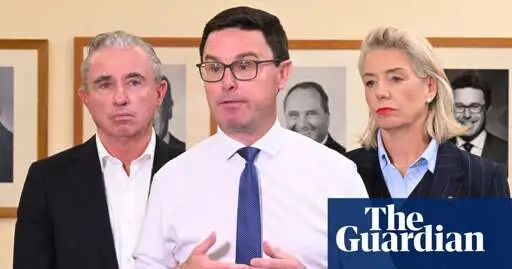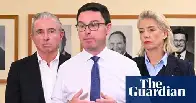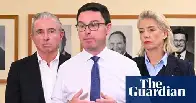It's so transparent it's almost laughable.
What gets me about the Nationals, is they barely advocate for the region's interests at all.
Climate change has, and is going to keep increasing the frequency and severity of droughts.
If I recall correctly, droughts in this country are strongly correlated with an increased rate of suicides of farmers, for fairly obvious reasons.
The Nationals ought to be on the "hey, how about we mitigate climate change" bandwagon.
But they're so captured by Gina Rhinehart and other moneyed interests and apparently the voters in rural areas don't care.
I don't get it, honestly.



